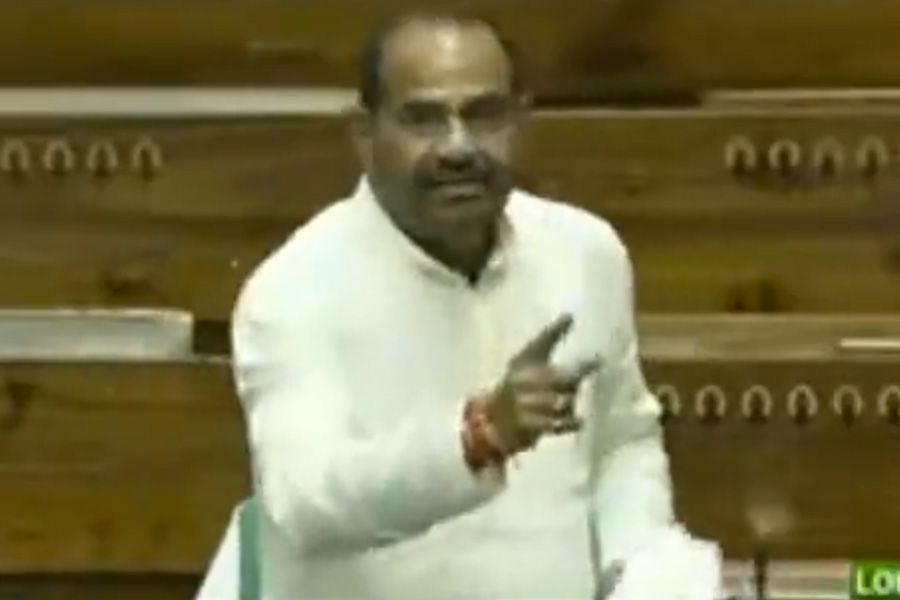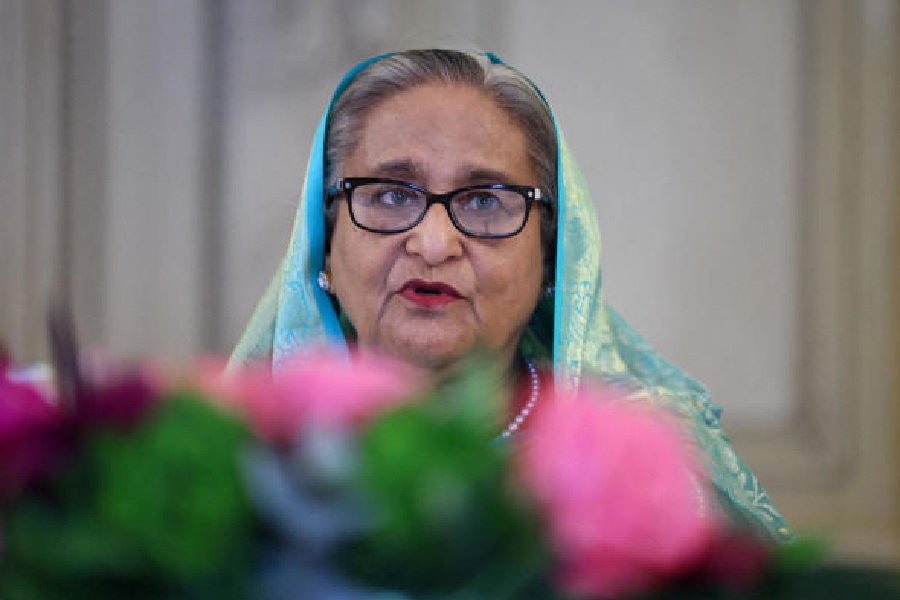In a recent editorial, The Telegraph had wondered whether the transition to a new Parliament building would lead to a betterment in parliamentary practices under the Narendra Modi regime. The answer, if the shocking diatribe by the Bharatiya Janata Party leader, Ramesh Bidhuri, against a Muslim parliamentarian is any indication, appears to be in the negative. While speaking on the success of India’s lunar mission, Mr Bidhuri chose to target Danish Ali of the Bahujan Samaj Party in a language that should shame not only Indian democracy but also its civilisational ethos. To call Mr Bidhuri’s outburst unparliamentary would be an understatement: it reeked of a vile mixture of bigotry and crudeness, marking the august House with an indelible stain. The BJP, as is its wont, has responded with a show of contrition. Mr Bidhuri has been served a show-cause notice by the party; he was also warned ‘sternly’ by the Speaker even though Opposition parliamentarians have been punished for far less by the Chair; the Union defence minister expressed his regret if the poisonous remarks had ‘hurt’ the sentiments of the Opposition — were Rajnath Singh’s sensibilities not violated by his colleague’s outrageous choice of words? The prime minister, of course, did not utter a word of condemnation. Parliament’s defilement is perhaps of little consequence for Mr Modi when there are elections to win.
Cynics would argue that Mr Bidhuri’s behaviour inside Parliament is consistent with the word on the street. After all, Mr Modi’s India has witnessed numerous instances of BJP leaders brazenly indulging in divisive oratory in public. According to one estimate, cases filed under the hate speech law had witnessed a rise of around 500% between 2014 and 2020. India’s minorities have borne a disproportionate share of this toxicity: a report by the organisation, Act Now for Harmony and Democracy, puts the figures of the targeting of Muslims and Christians through hate speeches at 73.3% and 26.7%, respectively. The dismal — dark — data on hate crimes are a separate, but growing, compendium. It is not as if India lacks laws or institutions to confront this sinister phenomenon. The highest court has urged states and Union territories to lodge suo motu first information reports against this offence; the Bharatiya Nyaya Sanhita, the proposed code of law for India, pledges a three-year penalty for hate speech. Yet, the sense of impunity among the offenders is robust and, hence, revealing. It is clear that encouragement from the highest political offices along with the complicity of administrations lies at the root of the evil.
Now that Parliament too has begun to sprout the rashes of ugliness that were once relegated to the streets, it is time for the conscientious citizen and the political Opposition to reflect on some harsh truths. There is no doubting the fact that the BJP’s polarising tenor enjoys credibility among large segments of the population. The pushback that is necessary against hate-mongering has, so far, been sporadic and fractured. One Bharat Jodo Yatra, undoubtedly an inspiring initiative, will not be enough to battle the spectre of hate. The counteroffensive needs to be collective — public — in character and implemented in the everyday life of the nation. All spaces — personal, political, institutional — need to be leached of the poison. Till then, India and its esteemed institutions will remain vulnerable to the shame brought upon by hatred.











